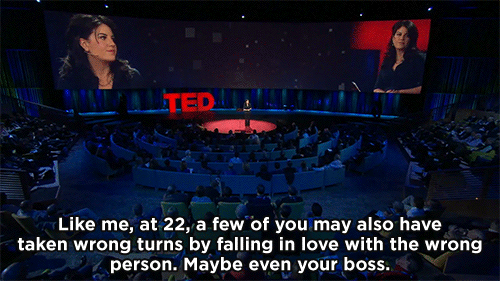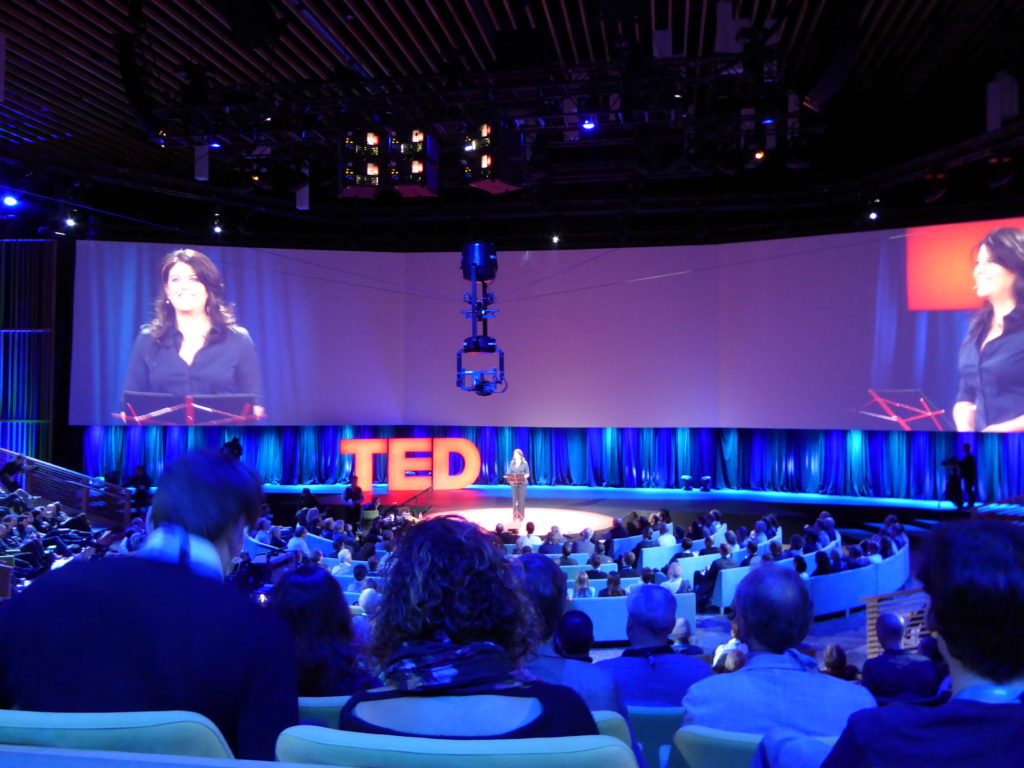Monica Lewinsky recently reflected on the 17-year-old nightmare she’s still grappling with. The one-time White House intern has long been an object of online derision and hate. Really since the Southern California natives’s name surfaced in January 1998 amid the Whitewater probe of President Bill Clinton.
“We are living in a place where humiliation has become a commodity,” Lewinsky said in her much-anticipated TED talk, in Vancouver on March 19. “There is a very personal price to public humiliation and the growth of the Internet has jacked up that price.”
A string of invectives follows her online to this day, in rap lyrics and elsewhere. She has faced self-righteous rants, contempt, ever-enduring jokes and will be forever branded with the digital scarlet letter.
“In 1998, I lost my reputation and my dignity. … I lost my sense of self,” Lewinsky explained. “When this happened to me, 17 years ago, there was no name for it. Now we call it cyber-bullying.”
It’s something a man in a comparable position would not likely have to deal with. The Clinton-Lewinsky presidential-intern affair occurred when she was 22, just out of college, and he was 49. Lewinsky, now 41, still bears the scandal’s scars. While the former president barely suffered a scratch. He is just as popular and just as highly revered. And his wife, Hillary Clinton, stands a decent chance at winning the White House herself.
The importance of Lewinsky’s talk was not just about her experience. It was about who we are as a society and how we treat one another in this digital age. It was about why we think it’s ok to hurl hateful comments through digital mediums that we would never imagine saying in person.
“Cruelty to others is not new,” she said, “but online, technologically enhanced shaming is amplified, uncontained and permanently accessible. … Millions of people, often anonymously, can stab you with their words. And that’s a lot of pain. And there are no perimeters around how many people can publicly observe you and put you in a public stockade.”
“The Internet is the superhighway for the id,” she continued, “but online showing empathy to others benefits us all … Just imagine walking a mile in someone else’s headline.”
Her call for a more compassionate society did not go unnoticed by TEDsters who took to social media with positive words of encouragement and in the room she received a standing ovation. Now, if only we can get the companies that create these platforms to exercise better judgment and delete Internet trolls who think hate-speech is ok.
In the same session, from the TED stage, Sarah Jones teased incredible insight remarks from her upcoming one-woman-play Sell/Buy/Date. Poised as a British schoolteacher giving a lesson “from that period of history, starting in 2016.” She taught us, “Girls, especially were expected to sexy while avoiding being sluts for being sexual. Right? So, there’s that shame piece we heard about….of course men were having sex as well. Right? But..Uhh, you’ll remember from the reading, what were male sluts called? Very good. They were called “men.”
Monica Lewinsky is not the most sympathetic figure to some, but as the saying goes, “He that is without sin among you, let him first cast a stone at her.” It’s a subject she addressed directly in her TED talk.
For those curious about her timing “The top-note answer was and is: Because it’s time. Time to stop tiptoeing around my past … Time to take back my narrative,” she said. “Anyone who is suffering from shame and public humiliation needs to know one thing: you can survive it. I know it’s hard. It may not be painless, quick or easy, but you can insist on a different ending to your story.”



